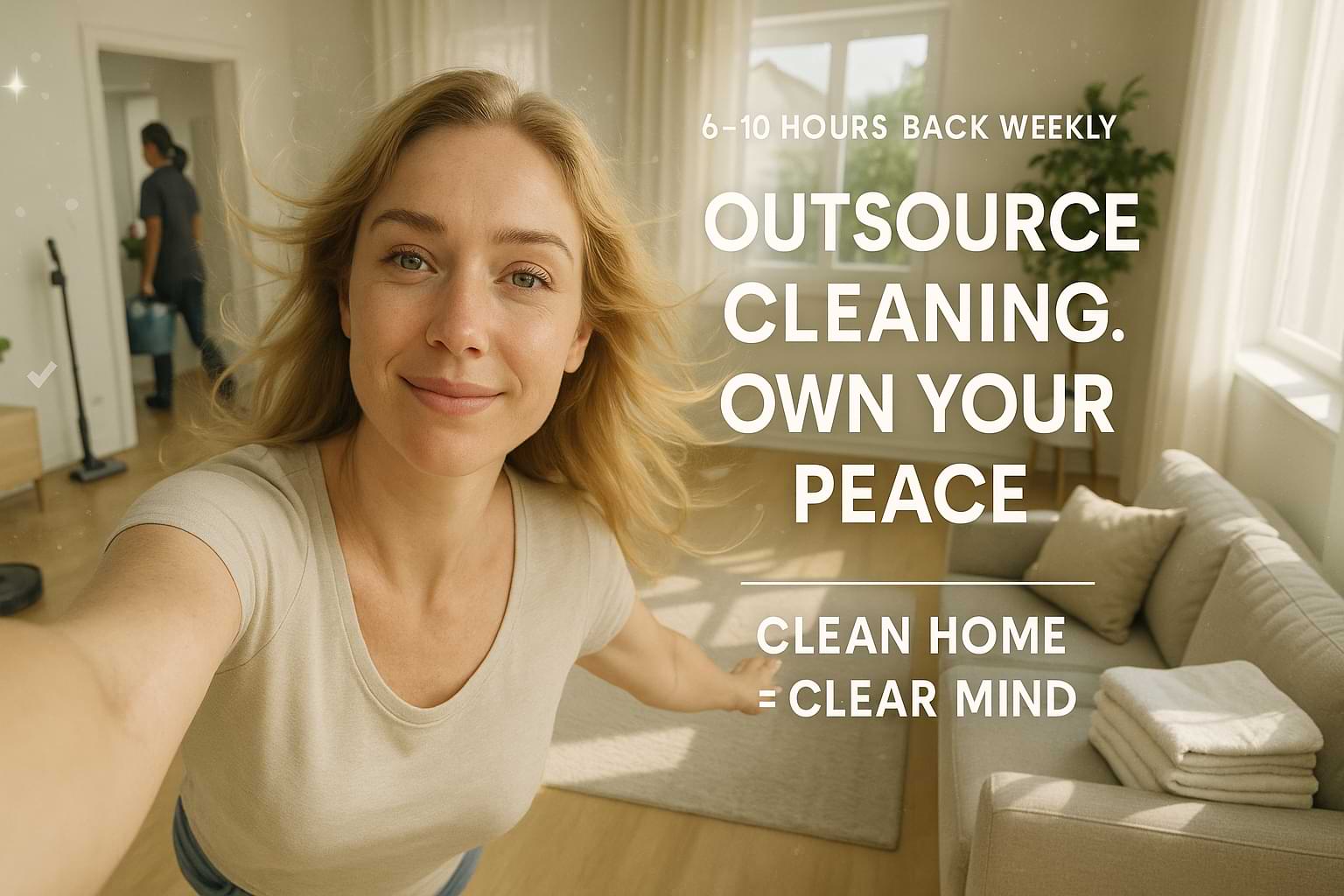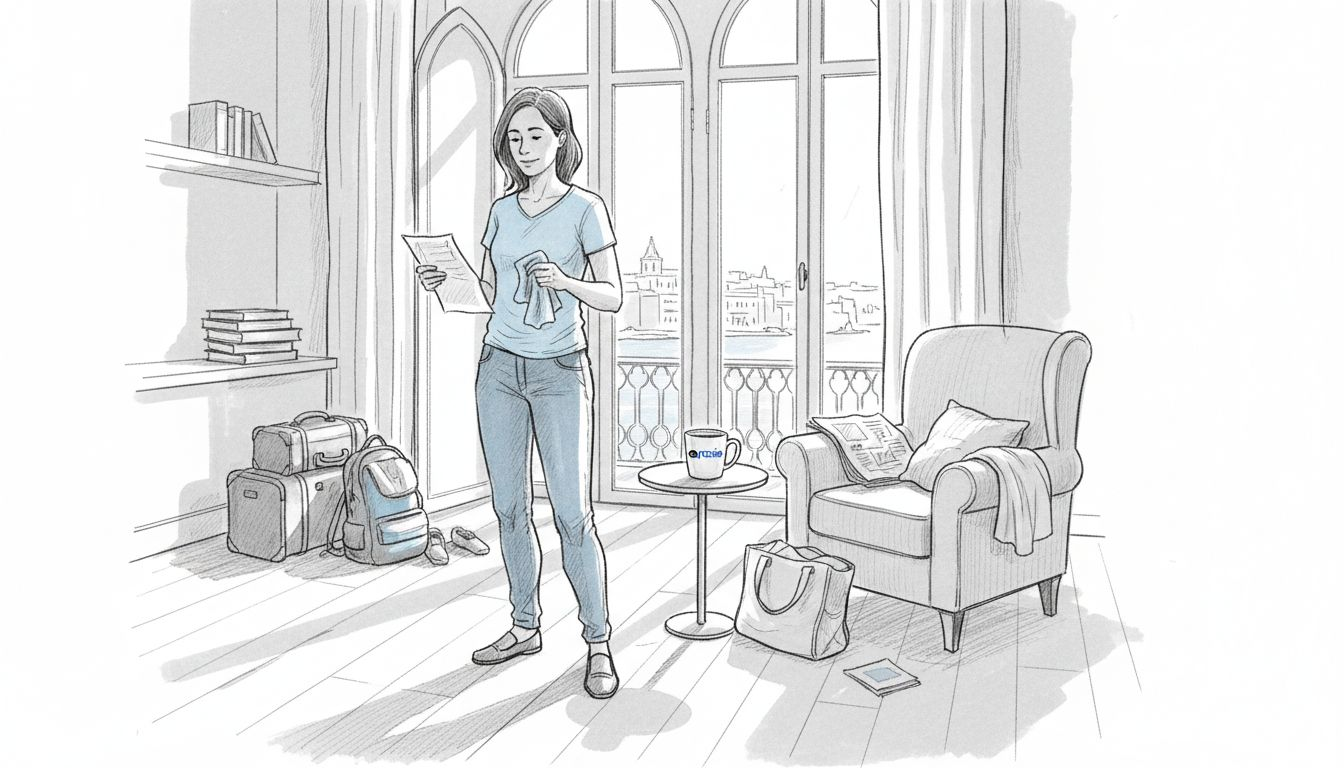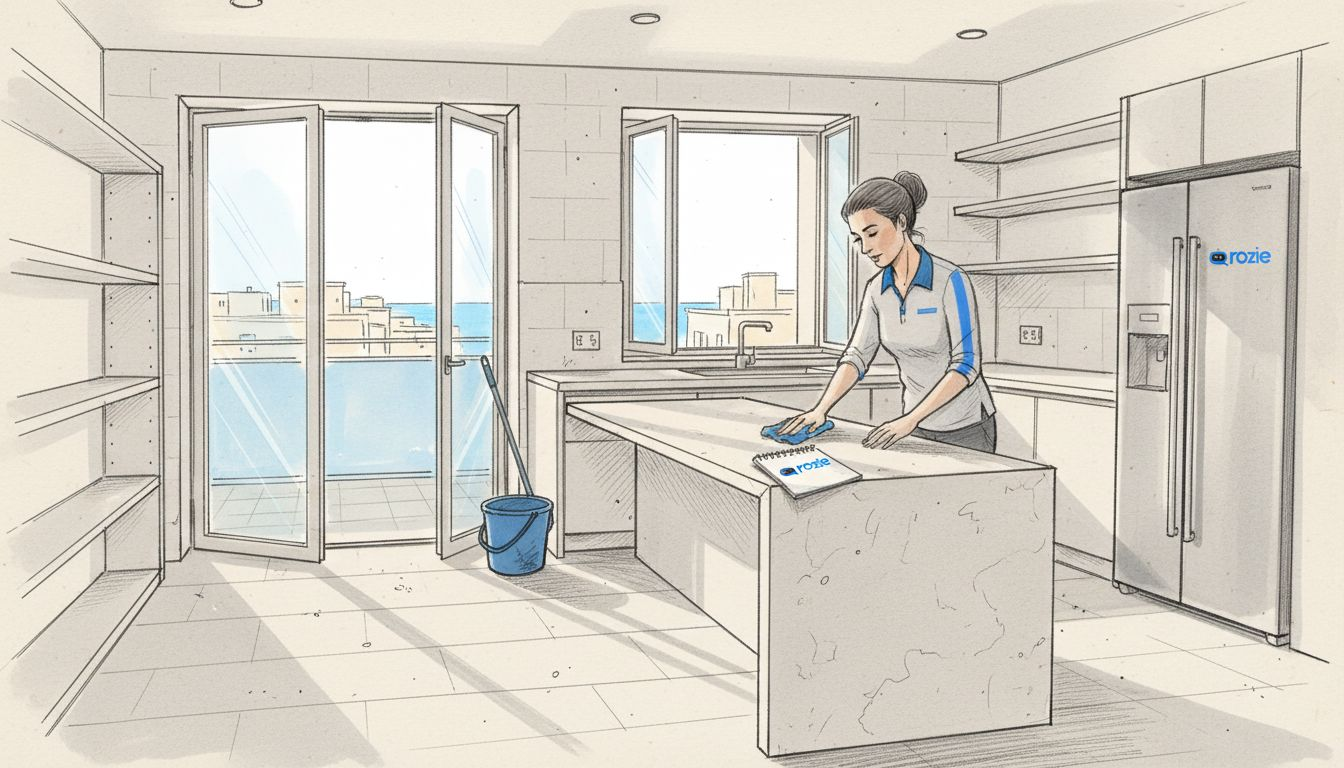If mornings start with sniffles of stress, it may be your home’s mental load—not your to‑do list. Here’s what science says about clutter, attention, and wellbeing, and how targeted outsourcing can lower stress without turning your life into a sales pitch.
By Rozie · Updated
TL;DR: Less mess, less mental load
- Visual clutter competes for your attention, increasing cognitive load and making it harder to focus.
- Messy, “unfinished” spaces correlate with higher stress markers and lower mood in everyday life.
- Buying back time (e.g., outsourcing cleaning) is linked to greater life satisfaction than spending on more stuff.
- Start small: outsource bathrooms, floors, and dusting; keep 10‑minute daily resets yourself.
What the science says about clutter, attention, and stress
1) Visual clutter drains attention
Neuroscience research shows that multiple stimuli in your visual field compete for representation in the brain, which makes sustained focus harder. That “busy room = busy brain” feeling isn’t a vibe; it’s how attention works. Keeping high‑traffic areas and work surfaces clear can immediately lower the cognitive load of daily life. (Journal of Neuroscience)
2) Cluttered homes, higher stress
In everyday home environments, people who describe their spaces as cluttered show less healthy cortisol patterns and report more negative mood across the day. In short: feeling “surrounded by stuff” correlates with feeling on edge. That’s a strong argument for routine decluttering and scheduled deep cleans. (Personality & Social Psychology Bulletin (PubMed))
3) Buying time improves wellbeing
Large cross‑country studies find that spending money on time‑saving services (like cleaning) is associated with higher life satisfaction—and in experiments, people reported greater happiness after a time‑saving purchase than after buying a thing. Translation: outsourcing chores can be a wellbeing investment, not a luxury. (PNAS, Forbes)
4) Managing stress is multi‑channel
Public‑health guidance emphasizes basics—sleep, movement, social connection, and practical coping skills. Housekeeping support complements these by reducing “always on” background tasks so you can actually do the healthy stuff (and rest). (NHS, WHO, CDC, NIMH)
5) The “mental load” is real work
Beyond scrubbing and vacuuming lies cognitive labor: anticipating needs, deciding, monitoring, reminding. Research identifies this invisible workload as distinct—and often unevenly distributed in families. Outsourcing physical chores reduces the pile‑up of decisions and “open loops.” (American Sociological Review, Forbes)
A 5‑minute audit of your mental load
- List the “visual hotspots” (kitchen counters, hallway floors, bathroom surfaces, sofa/throws).
- Map decision drains (laundry cycles, bedding changes, toy rotation, vacuum routes, “who cleans what”).
- Flag friction: Where are arguments or procrastination most common?
- Tag outsource candidates: tasks that are messy, time‑boxed, or easy to schedule (bathrooms, floors, dusting, linen change).
- Keep 10‑minute daily resets for yourself (dishes, clutter bins, quick wipe‑downs).
What to outsource vs. what to keep
High‑impact to outsource (weekly/bi‑weekly)
- Bathrooms (deep clean of sinks, toilets, showers, taps)
- Floors (HEPA vacuum & damp mop, edge‑work first)
- Dusting (microfiber, tops of frames, skirting, vents)
- Bedding change, wipe nightstands/lamps
- Kitchen deep tasks (appliance fronts, backsplash, stove)
Keep as quick daily resets (5–10 minutes)
- Dishes & counters after meals
- Clutter bin runs (toys, mail, chargers)
- Entryway mat shake, shoes‑off routine
- Targeted wipe of high‑touch points (handles/switches)
This split removes the biggest attention drains while preserving simple habits that keep your home feeling calm between visits.
2‑week starter plan (busy‑life friendly)
- Week 1, Day 1: Outsource bathrooms + floors + dusting. Take photos before/after to notice the difference in “visual noise.”
- Week 1, Days 2–7: 10‑minute nightly reset (dishes/clutter/handles). Keep work surfaces visually quiet.
- Week 2, Day 1: Add bedding change and a kitchen deep pass. Rotate throws/cushion covers if washable.
- Week 2, Days 2–7: Repeat short resets; schedule next visit. If mornings feel calmer, you’re on the right track.
FAQs
“Isn’t outsourcing indulgent?”
Not if it replaces time that increases your stress and decreases your focus. Evidence suggests time‑saving purchases can raise life satisfaction more than buying things you don’t need.
“Will I lose control of my home?”
Outsourcing reduces the cognitive load (deciding, scheduling, remembering) around heavy chores, while you keep quick daily habits that preserve calm.
“How often should I book?”
Weekly captures the most benefit for families with pets/kids; bi‑weekly works well for smaller flats. Start with a 2‑week trial and adjust.



